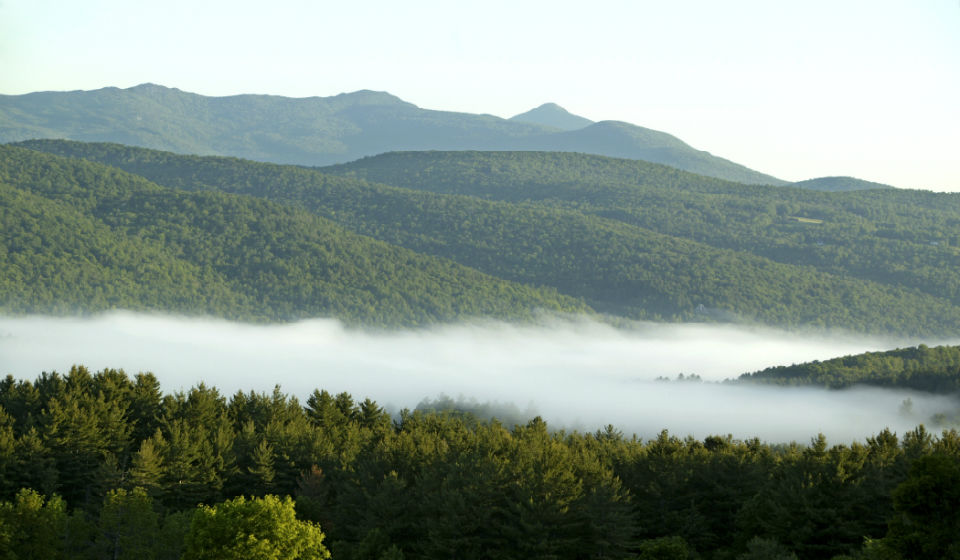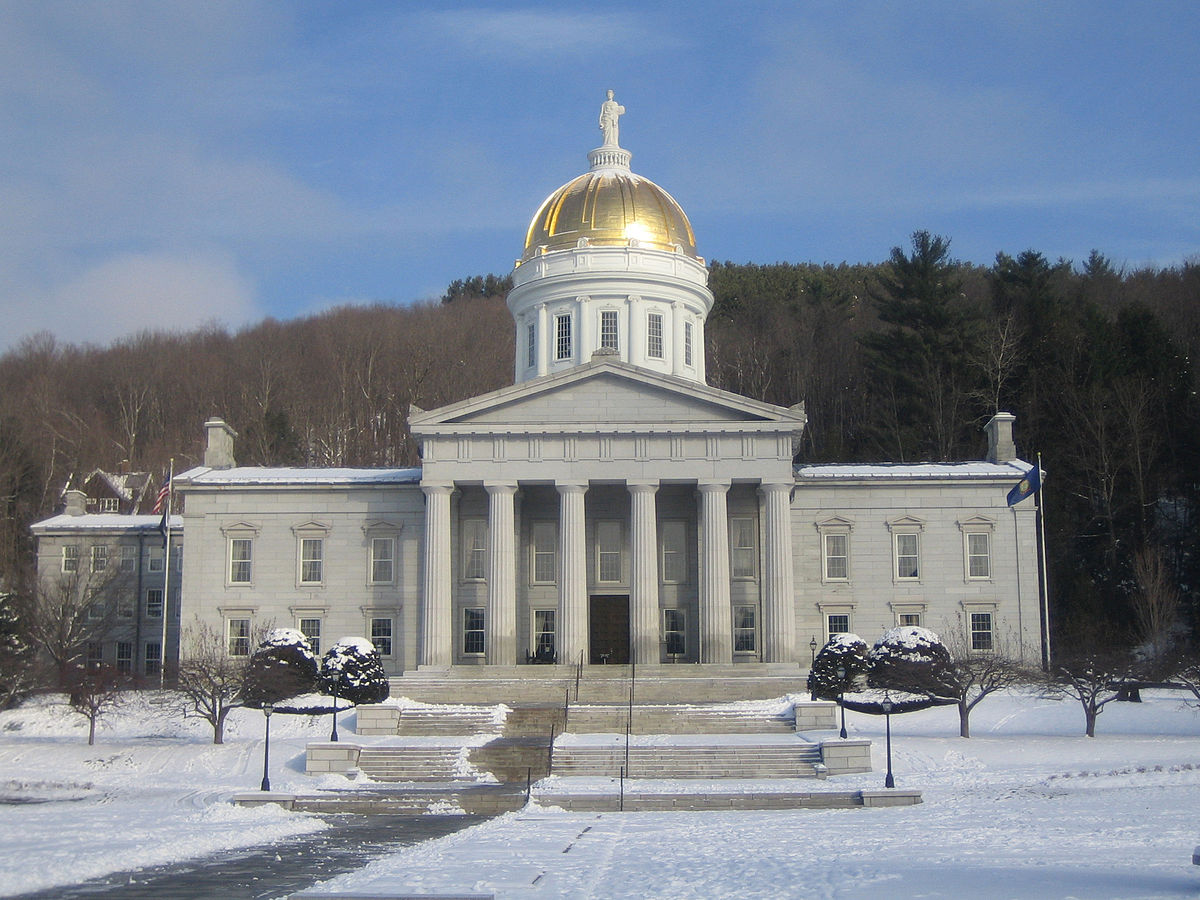LEGISLATIVE UPDATE March 2, 2020
WEEK 8:
Remember that the legislature is on Town Meeting break, they are off until March 10. I encourage you to reach out to your Senator or Representative during this break to discuss your concerns or support for legislation with them. They are elected to represent you, so they need to hear from you. The next legislative update will be March 16.
INCLUDED IN THIS UPDATE
Act 250/H926
Dairy Marketing Report
H-254 Adequate Shelter
Bio Char
Tree Wardens
S-54 Cannabis
Minimum Wage
H-926 An act relating to changes to Act 250
The House spent last Thursday evening and much of Friday morning discussing and debating H-926, the new Act 250 bill. In the end the bill passed on a vote of 88 yea and 52 no. There were three amendments added Friday morning that passed. The first would allow the Department of Fish and Wildlife to “billback.”
“Department of Fish and Wildlife shall have the authority to bill the applicant for the costs of participating in any major permit application before a District Commission, including the costs of employee application review, submissions, comments, and testimony before a District Commission related to impacts on wildlife, necessary wildlife habitat, or connecting habitat. The Department may recover those costs from the applicant after notice to the applicant, including an estimate of the costs of the personnel or services.”
The second amendment moved the elevation back to the 2500 ft elevation from the 2000 ft that had been recommended in the bill. H-926 will now go the Senate Natural Resources for their deliberations.
The third amendment was for the definition of “Greenhouse gas” which was amended to read carbon dioxide, methane, nitrous oxide, hydrofluorocarbons, perfluorocarbons, and sulfur hexafluoride.
The bill still contains the expanded criteria which include:
- Reorganizing the air and water pollution criteria.
- Amending the transportation, energy conservation, and public investment criteria.
- Amending the criteria to address ecosystem protection through protecting forest blocks and connecting habitat. The bill also would increase the program’s ability to protect ecosystems on ridgelines but maintains the 2,500 elevation.
- Adding new criteria related to climate adaptation and environmental justice.
- Requiring that, to be used in Act 250, local and regional plans must be approved as consistent with the statutory planning goals and clarifying that local and regional plan provisions apply to a project if they meet the same standard of specificity applicable to statutes.
- As part of a balancing of interests to support economic development in compact centers while promoting a rural countryside, supporting a working landscape, and protecting important natural resources, exempting designated downtowns and neighborhood development areas from Act 250 and increasing Act 250 jurisdiction at interstate interchanges and over
- Amending the Capability and Development Plan Findings
- Clarifying the definition of “commercial purpose” so that it is not necessary to determine whether monies received are essential to sustain a project.
- Reaffirming the supervisory authority in environmental matters of the Board and District Commissions, in accordance with the original intent of Act 250 as determined by the Vermont Supreme Court.
- Revising and clarifying the statutory authority on the use of other permits to demonstrate compliance with the criteria.
- Creating a process that would allow properties to be released from Act 250 jurisdiction.
- Requiring slate quarries to be added to the Agency of Natural Resources Natural Resource Atlas.
- Establishing a preapplication process to allow municipal and regional planning commissions to weigh in on a project before the Act 250 permit application is filed.
- Allowing forest-based enterprises to operate outside of permitted hours
- Shifting the burden of persuasion to the applicant under criterion 8.
- Requiring the Agency of Natural Resources to establish a permit program for highest priority river corridors.
DAIRY MARKETING REPORT
In 2019 Act 83, (S-160), requested that the Secretary of Commerce and Community Development shall contract with a qualified marketing consultant to assess the viability of increasing demand for Vermont dairy products in major metropolitan markets. On Tuesday the House and Senate Agriculture committees heard from Karen Karp & Partners, a New York based food system consulting group. KK&P used both qualitative and quantitative methods in research. Some of their work included conducting interviews, studying past and current reports regarding the Vermont dairy brand, and reviewed state or place-based branding efforts in other parts of the country. The final report provided and in-depth review of national consumer and cultural trends, what the dairy sector in Vermont looks like, a stakeholder perspective of the Vermont “Brand” and their recommendations of what might work.
CONCLUSIONS
- The creation of a Vermont dairy brand would not be the highest-return strategy for supporting the state’s dairy sector. Due to Vermont being a significant exporter of milk (net exporting 85% of the milk it produces), any such branding effort would necessarily target consumers outside of Vermont, yet stakeholders were largely skeptical that consumers outside Vermont would pay a premium for Vermont fluid milk.
- Nevertheless, there are a number of areas of alignment between ascendant consumer preferences, growing market segments, and Vermont dairy’s strengths; and there are opportunities for the state to help the dairy sector “lean into” these areas
- Value-added product supply chains may represent the best opportunities for Vermont’s small farms.
- The State of Vermont could best support the viability of its small dairy farms by pursuing a suite of strategies which support farms’ adaptation to new business models that double down on what small farms already do well (make good milk and care for the land), while more strategically targeting sectors of the dairy market that are both high value and high growth
RECOMMENDATIONS
- Build Vermont’s Dairy Expertise
- Encourage Dairy Differentiation
- Communicate Vermont’s Dairy Identities
- Invest in Infrastructure & Workforce
- The entire report can be found on the Agency of Agriculture’s website
- 2020 Vermont Dairy Marketing Assessment Report
The entire report can be found on the Agency of Agriculture’s website 2020 Vermont Dairy Marketing Assessment Report
H-254 An act relating to adequate shelter for livestock
This bill proposes to define adequate natural shelter, adequate constructed shelter, and adequate ventilation for the management of livestock animals. The bill also would require livestock animals confined in enclosed areas to be provided adequate exercise. In addition, the bill would require a livestock animal on a leash, rope, or chain to be affixed in a manner that prevents the livestock animal from becoming entangled or injured and permits the livestock animal access to adequate shelter, adequate food, and adequate water.
This bill passed the House and is headed to the Senate. This bill has been discussed in previous years but had never made it to the Governor’s desk. Not sure it will make it this time.
H-798 An act relating to the use of biochar
This bill proposes to authorize the use of biochar in agricultural waste storage facilities for the purposes of odor control and nutrient retention. The bill also requires the Secretary of Agriculture, Food and Markets to submit to the General Assembly a report recommending additional uses of biochar in farming in Vermont. Similarly, the bill would require the Commissioner of Forests, Parks and Recreation to report to the General Assembly regarding the feasibility of establishing or enhancing the production of biochar in the State.
The House Agriculture committee took more testimony regarding the benefits and challenges of biochar.
TREE WARDENS
H- An act relating to tree wardens
This bill proposes to grant tree wardens the authority to manage shade trees within a public place or public way and establish notice and hearing procedures related to the cutting of shade trees by a tree warden.
The above paragraph is the new language that Commissioner Snyder introduced last Thursday in House Agriculture. There is a definition of “shade trees.” The Vermont League of City and Towns has not testified on this new language. The committee will take the bill up after the Town Meeting break.
S-54 An act relating to the regulation of cannabis
Last Wednesday the House passed S-54 on a vote of 90 to 54. If the Senate agrees with the House changes the retail of sale of cannabis could be an option in Vermont. A difference between the House and Senate version’s is the absence of a local option tax in the House bill. The bill sets up a five-member cannabis control board. There is a 6% sales tax and then a 14% excise tax rate. Revenues from the taxes will be directed to and afterschool education program and prevention. The fees associated will cover the cost of regulation. The bill also sets up labeling and testing standards. There was an effort from the House floor to add a roadside saliva test but that went down on a vote of 27 to 117. The Governor has indicated that he could not support a bill that did not have a roadside saliva testing program.
Minimum Wage
The House overrode Governor’s Scott veto of S-23 on Tuesday. The bill raises the minimum wage to $11.75 by January 1, 2021 and $12.55 January 1, 2022. The vote was 100 to 49.
BILLS OF INTEREST
The date for introduction of bills has passed, if a new bill is to be introduced it would need to be a committee bill. As of today, there are 919 House bills and 337 Senate bills for the last two years.
As of 2/14/2020
H-926 An act relating to changes to Act 250 (a committee bill)
As of 2/02/2020
S-336 An act relating to establishing standards for the sale of hemp seed
As of 1/26/2020
H-830 An act relating to the use of food residuals for farming
H-832 An act relating to the use and management of pesticides
H-852 An act relating to signal lamp permits for farm tractors and farm trucks
H-853 An act relating to discontinued highways, legal trails, and impassable or untraveled highways
S-321 An act relating to miscellaneous fish and wildlife issues
As of 1/19/2020
H-557 An act relating to municipal regulation of livestock running at large
H-562 An act relating to the definition of agricultural land for the purposes of use value appraisals
H-575 An act relating to bears doing damage to agricultural crops
H-581 An act relating to the funding of the Department of Fish and Wildlife
H-584 An act relating to disclosure of cyanobacteria outbreak prior to conveyance of real property
H-616 An act relating to the professional regulation of land surveyors
H-628 An act relating to Cross Vermont Trail directional signs
H-633 An act relating to development and subdivisions above 1,500 feet
H-673 An act relating to tree wardens
H-674 An act relating to clarifying the definition of development used for use value appraisals
H-688 An act relating to addressing climate change
H-759 An act relating to the use of neonicotinoid-treated article seed
H-766 An act relating to the regulation of cannabis
H-794 An act relating to limiting liability for agritourism
H-798 An act relating to the use of biochar
H-828 An act relating to Vermont standards for issuing a Clean Water Act section 401 certification
H-829 An act relating to the use of the pesticide chlorpyrifos
S-200 An act relating to the definition of house-site for use value appraisals
S-280 An act relating to forest carbon sequestration programs
S-310 An act relating to use value appraisals
S-315 An act relating to administration and enforcement of agricultural water quality violations
To learn more about any of the bills listed above, visit the Vermont Legislative website at https://legislature.vermont.gov/ and use the very convenient search tool available. If you wish us to keep a keen eye on any of the above bills, please let us know by sending an email to info@vermontwoodlands.org.



